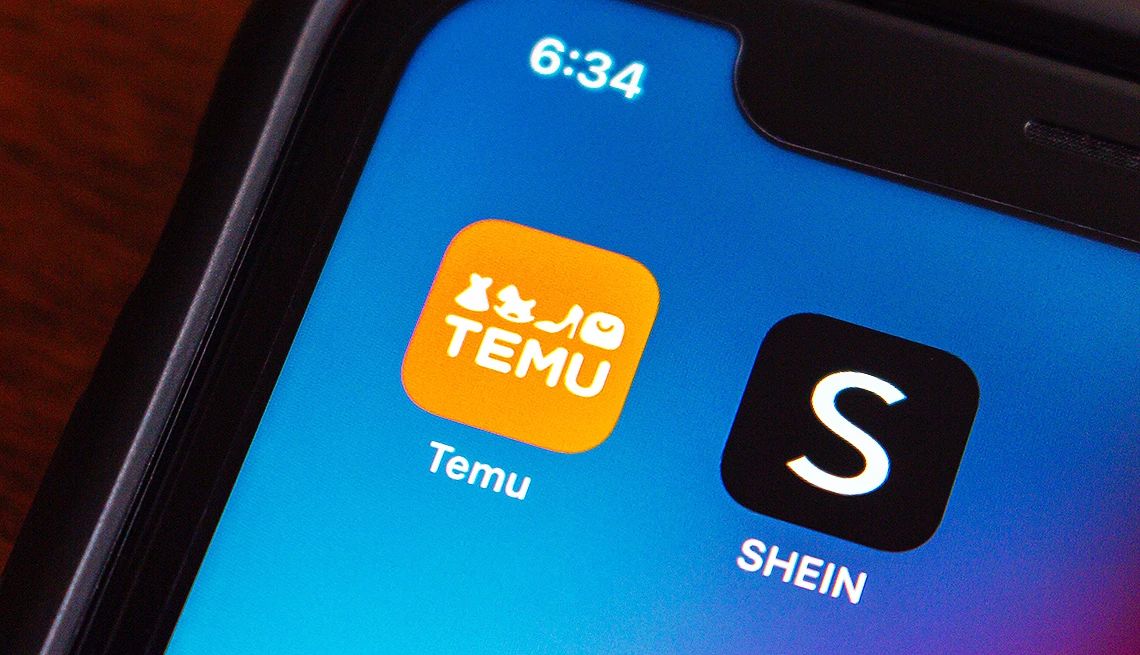Staying Fit


Alongside the many celebrity-laden Super Bowl ads this year was another advertiser that purchased multiple spots throughout the big game. Splashy commercials for discount e-commerce company Temu promised viewers that they could “shop like a billionaire” when making purchases on the site.
The name Temu (pronounced teh-moo) may already be familiar to folks who spend a lot of time shopping online, where the retailer was 2023’s largest advertiser with Meta, the parent company of Facebook and Instagram. Like fellow online discounter Shein (pronounced she-in), Temu has risen to prominence quickly in recent years. Although Shein remains primarily focused on a younger clientele, Temu is looking to broaden its base by targeting older shoppers in the United States as its parent company has in China.


AARP Membership— $12 for your first year when you sign up for Automatic Renewal
Get instant access to members-only products and hundreds of discounts, a free second membership, and a subscription to AARP the Magazine.
“It’s not a coincidence that Temu is taking out Super Bowl ads and advertising on Facebook rather than Instagram,” says Amanda Lee McCarty, host of the slow-fashion podcast Clotheshorse, alluding to the relatively older makeup of Facebook users. “They know this customer well.” Want to know more about the sites before shopping at them? We’ve got answers to your questions below:
What’s it like to shop on Temu and Shein?
Shein specializes in “fast fashion” – that is, the ability to offer the latest fashion trends more quickly than most retailers. Temu has a similar strategy with more broad-based product offerings that range from dresses to drills. Both sites offer a “gamified” shopping experience, designed to make the shopping experience fun – and to get shoppers to buy as much as possible.
“There are a lot of little games with spinning wheels and things like that,” says Inès Durand, senior market insights manager at Similarweb. “That’s what will make it different than if you go on Amazon … they’re going to suggest you play around with a lot of features and try to make you excited when you get a credit, so you spend more.”
Since the products are coming directly from manufacturers in China, expect orders to take a week or more to arrive at your door, which could be an adjustment if you’re used to the two-day shipping that has become common among many American retailers.
In terms of quality, experts say to expect a level commensurate with the low prices that you’re paying. “Obviously, you get what you pay for,” says John Deighton, a professor at Harvard Business School, who focuses on digital and direct marketing.
In a statement, Temu said that its affordable prices are not a reflection on their quality and that the company employs “stringent quality control measures.” Shein pointed to a study that found its customers wear its products an average 10 times or more.




































































More From AARP
Rule to Limit Most Credit Card Late Fees
A new rule adopted by the CFPB would most cap late fees at $8
Tax Breaks You Shouldn’t Overlook
Every deduction counts in tax season
AARP State Tax Guides: What You’ll Pay in 2024
Find out about tax breaks, sales tax and whether your state taxes Social Security
Recommended for You